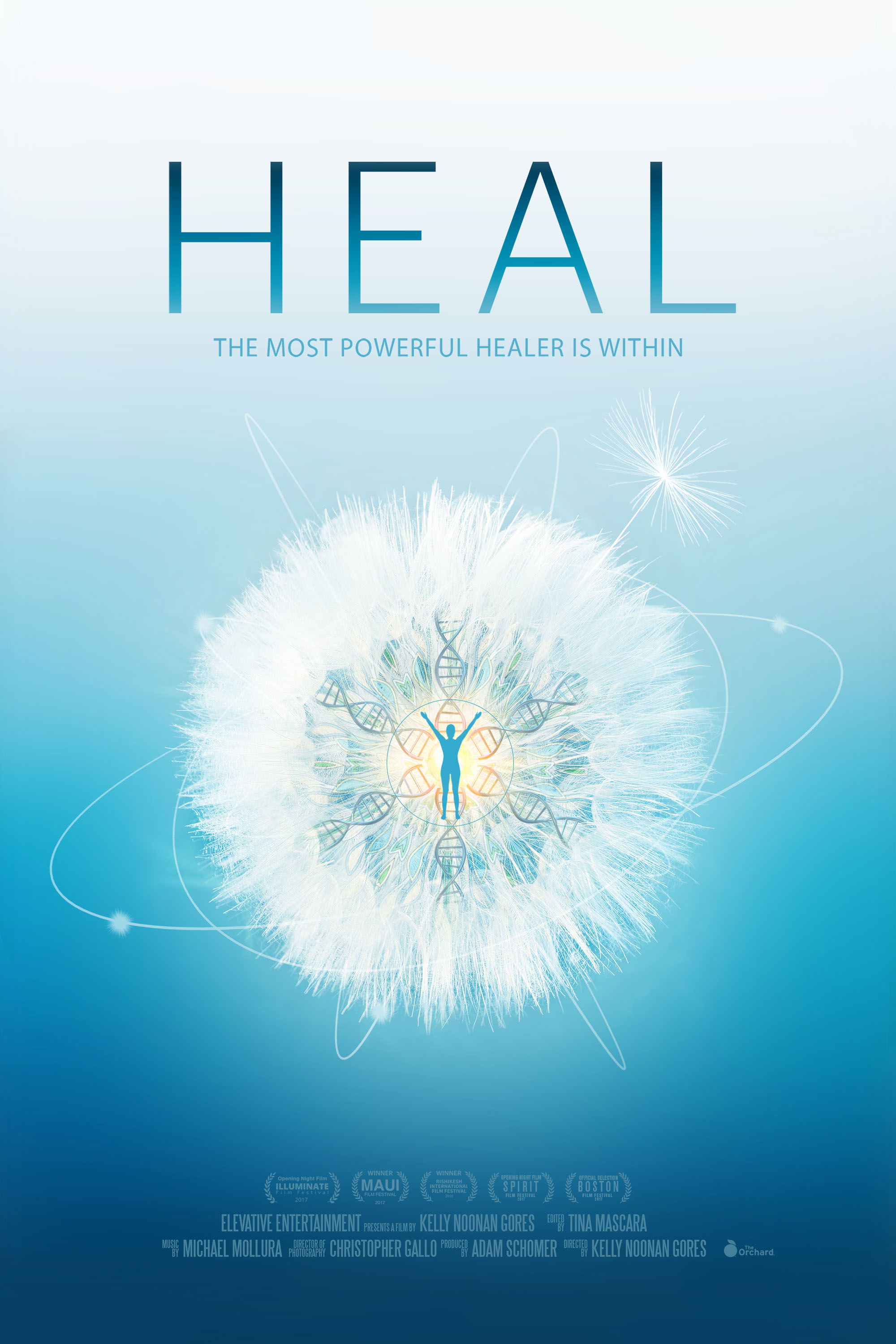Heal Documentary

Heal begins with an opening monologue from Noonan-Gores in which the director states her concerns about the growing cases of disease due to the toxicity of the environment and food people consume. Noonan-Gores then transitions to gathering testimonials from those who have experienced mind-body medicine.
Chiropractor Joe Dispenza describes his experience when he was hit by a car during a triathlon. He declined surgery and says he recovered by reconstructing his spine in his mind, and that his recovery led him to conduct research on mind-body medicine.
Elizabeth Craig details her healthy, yet stressful life. Craig noticed something was physiologically wrong when she started developing frequent headaches and nausea. Doctors eventually diagnosed her with stage four colorectal cancer. Several scientists and mind-body practitioners discuss the role of stress in the modern age and its physiological effects.
Next Eva Lee describes the appearances of skin rashes and boils throughout her body. Doctors diagnosed her with an unspecified autoimmune disease; she sought an alternative to medications. Bruce Lipton and David Hamilton then discuss quantum physics and chemistry applied to mind-body healing.
The fourth person to be introduced is Anita Moorjani, who describes her experience with lymphoma. She believes that fear is the cause of her cancer and says her tumors dissolved within five weeks. Kelly Turner, who holds a Ph.D in social welfare,[7] discusses her research on radical remissions. Kelly Brogan briefly discusses her experience in seeking alternative medicine as a way to circumvent taking medications for the rest of her life. Michael Beckwith weighs in with his views on pharmaceuticals. Bruce Lipton and Deepak Chopra express their concerns with prescription drug use for chronic illnesses. Anthony William describes his role in assessing patients and the importance of diet in treating chronic illnesses.
David Hamilton describes his role as an organic chemist and the effects of a placebo. Bruce Lipton, Joe Dispenza, Deepak Chopra, Michael Beckwith, and Kelly Turner comment about the nature of prognosis. Elizabeth Craig is later seen explaining her reasons for seeking treatment in addition to chemotherapy. She eventually starts seeing Dianne Porchia, a spiritual psychologist, to help her get rid of her fear of death. Bruce Lipton, Joan Borysenko, Gregg Braden, and Darren Weissman discuss stem cells, genetics and the role of the environment on one's health. The film then refocuses on Eva Lee, who is in a therapy session with Patti Penn, a Reiki master and Emotional Freedom Technique practitioner. Several individuals discuss the supposed roles of past trauma and stress on physical ailments. This is followed by commentary on the pharmaceutical industry.
Jeffrey Thompson is shown discussing the nature of the nervous system and how he uses sound waves to activate Eva Lee's parasympathetic nervous system. Noonan-Gores, Joan Borysenko, Marianne Williamson, Deepak Chopra, and Kelly Turner discuss the role of meditation in relieving stress and activating the parasympathetic nervous system. Gregg Bradden then asserts that prayer and thoughts of love work in combating illness by incorporating quantum entanglement and the Big Bang.
The film concludes that Elizabeth Craig became cancer-free and provides commentary about societal conventions about western medicine.
You can watch the video for free on Tubi here.
AMAZON AFFILIATE NOTICE: This website is an Amazon Affiliate and earns from qualifying purchases. A qualifying link can be identified by the (paid link) subscript to right of the link. Please note, this does not affect your cost in any way.